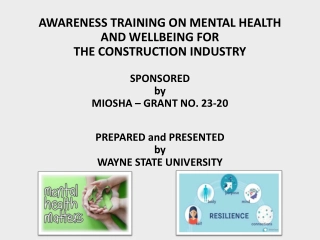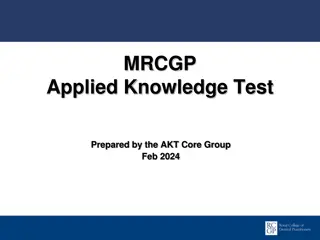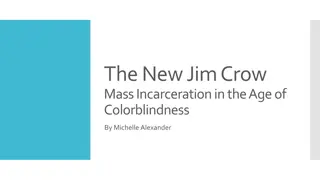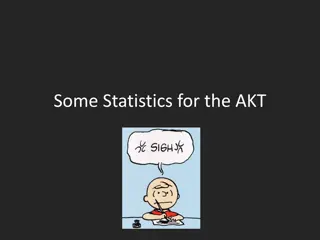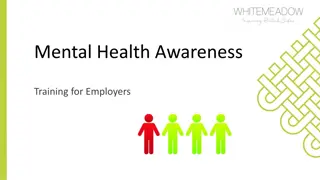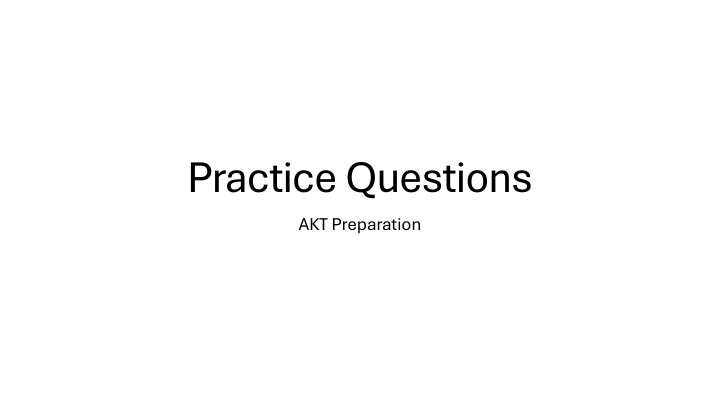
Psychiatry Practice Questions for AKT Preparation
Prepare for the AKT exam with practice questions focusing on psychiatric scenarios such as psychotic depression, mania, post-natal psychosis, and more. Test your knowledge of diagnosis and treatment in various mental health conditions.
Download Presentation

Please find below an Image/Link to download the presentation.
The content on the website is provided AS IS for your information and personal use only. It may not be sold, licensed, or shared on other websites without obtaining consent from the author. If you encounter any issues during the download, it is possible that the publisher has removed the file from their server.
You are allowed to download the files provided on this website for personal or commercial use, subject to the condition that they are used lawfully. All files are the property of their respective owners.
The content on the website is provided AS IS for your information and personal use only. It may not be sold, licensed, or shared on other websites without obtaining consent from the author.
E N D
Presentation Transcript
Practice Questions AKT Preparation
7. A 19 year old man has 1 day of fever, muscle stiffness, palpitations and difficulty breathing. He has a history of psychotic depression. He has been taking fluoxetine for 6 weeks and started taking risperidone 1 week ago. He is agitated and distressed. His temperature is 39.8 C, pulse rate 114 bpm, BP 172/89 mmHg and respiratory rate 30 breaths per minute. Chest examination is otherwise normal. There is increased tone globally; there are no other neurological abnormalities. Which test is most likely to help confirm the diagnosis ? A. CT scan of head B. ECG C. EEG D. Lumbar puncture E. Serum creatine kinase
A 28 year old woman is elated in mood, has not slept for 7 days and has been attending all-night parties. She is sexually disinhibited and believes that she is a member of the royal family. She was previously fit and well and has no past psychiatric history. A urine drug screen is negative Which is the most appropriate medication? A. Diazepam B. Lithium carbonate C. Olanzapine D. Sodium valproate E. Zuclopenthixol decanoate
A 62 year old man attends the outpatients clinic with his wife. He has had reduced energy and lack of interest in his work and poor sleep for six weeks. He has lost weight. There is evidence of self- neglect and reduced eye contact. He is known to have benign prostatic enlargement. A. Benzodiazepine B. Selective serotonin re-uptake inhibitor C. Serotonin noradrenaline re-uptake inhibitor D. Tricyclic antidepressant E. Z-drug
A 23 year old woman has barricaded herself with her baby in the bathroom, shouting that it is unsafe to come out because the house is infected. She thinks that someone is trying to kill her and her baby. She is four days postcaesarean section. Her mood has not been low at any stage. She was not on any medication during her pregnancy, but drank 20 units of alcohol a week. Her physical recovery from caesarean section has been uncomplicated. She is orientated in time and place. Which is the most likely diagnosis?
Continued A. Alcohol withdrawal B. Delirium C. Obsessive-compulsive disorder D. Post-natal depression E. Puerperal psychosis
A 45 year old man has a tremor that has worsened over several weeks. He has a history of schizophrenia and is taking haloperidol. He has bilateral tremor and cog-wheel rigidity in his upper limbs Which is the most appropriate treatment to manage his symptoms? A. Co-beneldopa B. Entacapone C. Pramipexole D. Procyclidine hydrochloride E. Selegiline hydrochloride
. A 66 year old woman has become forgetful, does not sleep well and has lost her appetite over the last few weeks. She has been getting up early in the morning because she cannot sleep. She feels that she is no longer of any use to the rest of her family. Mini Mental State Examination is 27/30. Which is the most likely diagnosis? A. Age-associated memory impairment B. Alzheimer s disease C. Depression D. Frontotemporal dementia E. Vascular dementia
A 35 year old woman is admitted unconscious to the Emergency Department after being found collapsed outside a pub. There was an empty vodka bottle lying next to her. Her pulse is 86 bpm, BP 112/62 mmHg, respiratory rate 12 breaths per minute and oxygen saturation is 98% breathing air. Which is the most important immediate investigation? A. Arterial blood gas B. Blood alcohol level C. Capillary blood glucose D. Urea and electrolytes E. Urinary drug screen
A 25 year old man develops a muscle contraction in his neck causing pain and an involuntary rotation of his neck. He was admitted to the psychiatric unit 24 hours ago with persecutory delusions, agitation, and auditory hallucinations. He has been given risperidone since admission. Which side effect is he experiencing? A. Akathisia B. Autonomic instability C. Dystonia D. Parkinsonism E. Tardive dyskinesia
A 52 year old man has three days of severe epigastric pain, radiating to his back, but no chest pain. He has vomited several times. He was previously well. He drinks approximately 60 units of alcohol a week and smokes 20 cigarettes per day. There is epigastric tenderness but his abdomen is not distended, and bowel sounds are present. Which test would confirm the most likely diagnosis? A. Abdominal X-ray B. Gastroduodenoscopy C. Serum alkaline phosphatase concentration D. Serum amylase concentration E. Ultrasound scan of abdomen
Our old favourite!! A 76 year old woman with hypertension is taking amlodipine 10 mg daily. A 24 hour BP measurement shows a mean BP of 168/90 mmHg. Investigations: Sodium 135 mmol/L (135 146) Potassium 4.0 mmol/L (3.5 5.3) Urea 7 mmol/L (2.5 7.8) Creatinine 100 mol/L (60 120) eGFR 68 mL/min/1.73 m2 (>60) Urinary albumin : creatinine ratio 50 mg/mmol (<3.5) Which class of antihypertensive should be added? A. ACE inhibitor B. Alpha blocker C. Beta blocker D. Loop diuretic E. Thiazide-like diuretic
Sleep! A 72 year old woman has had inability to sleep well for the past 3 years. She gets to sleep by 23:00 but wakes up two or three times in the night and gets up by 07:00. Her husband says that she doesn't snore. Her BMI is 23 kg/m2 . She carries out her normal daytime activities with no daytime somnolence. She is otherwise well. Her MMSE (Mini Mental State Examination) score is 27/30. Which is the most likely cause of her insomnia? A. Depression B. Early stages of dementia C. Hypomania D. Normal age related sleep pattern E. Obstructive sleep apnoea
BP Again! . A 65 year old man sees his GP for monitoring of hypertension and ischaemic heart disease. His medication includes aspirin, atenolol, amlodipine, lisinopril and simvastatin. He has marked ankle swelling. Which drug is the most likely cause of his ankle swelling? A. Amlodipine B. Aspirin C. Atenolol D. Lisinopril E. Simvastatin
Last one! An 86 year old woman has had three falls in the past 3 months. On each occasion, she describes feeling lightheaded and dizzy prior to falling. She is taking alendronic acid, amlodipine, atorvastatin, metformin and zolpidem tartrate. Her BP is 132/80 mmHg sitting and 138/84 mmHg standing. Which medication is most likely to be contributing to her falls? A. Alendronic acid B. Amlodipine C. Atorvastatin D. Metformin E. Zolpidem tartrate

